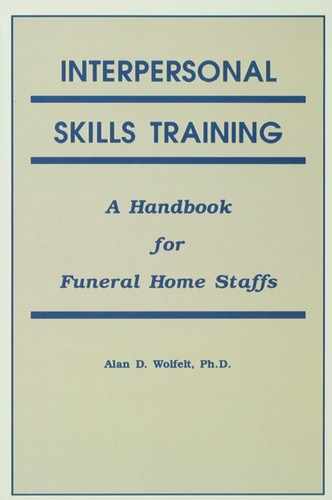A FINAL WORD
“We can be cured of depression in only fourteen days if every day we will try to think how we can be helpful to others.”
Alfred Adler
Hopefully, the material outlined in this book will allow you to be even more prepared for your helping responsibilities with people—before, during, and after the funeral. You have the opportunity to “be with” people during times of great emotional distress, including the “first call,” the arrangement conference, the first viewing, the funeral service and committal, as well as the post-funeral period. What an opportunity to help other human beings!
Yes, other trained professionals are available to offer support and assistance; however, none are in a better position to provide help during the entire experience of death than you—the funeral director. You are not usurping the role of other helping professionals, but rather you have purposeful, immediate, and ongoing access to the grieving family. If you have developed a helping-healing relationship during the funeral experience, your presence and help will be welcomed by the grieving family long after the death has occurred.
Building helping skills as you have done through this training experience augments your overall abilities as a funeral director and assists you in becoming an indispensable member of the community of caregiving professionals. When people need help beyond your skills, you are in the natural position to provide appropriate referral to other community resources.
Using your new skills to reach out and assist others will build your confidence as a helper. Just as those funeral directors who have poor communication skills often become natural targets for the grieving person’s frustration and helplessness, those with effective communication skills will be rewarded by the people served.
While helping has its rewards, it also has its hazards. The helping process requires energy and focus. It is also a demanding interpersonal experience. Fortunately, you can help yourself cope with the stress that comes from being a helper. The result is that helping becomes an exciting and rewarding endeavor.
As a helping funeral director, recognize that on occasions you too need a supportive relationship where you can be listened to and accepted—to recharge your emotional battery. Few people who have ever tried to respond to the needs of others in a helping relationship have escaped the stress that comes from emotional involvement. Involving yourself with others, particularly at a time of death and grief, requires taking care of oneself as well as others.
As noted in Chapter 22, emotional overload, circumstances surrounding deaths, and caring about people will ultimately touch the depths of your own heart. When this occurs, you should feel no sense of inadequacy or stigma if you, too, need the support and understanding of a caring relationship.
Also critically important is to realize that you don’t have to help everyone, with everything, all of the time. Should you find yourself doing this, chances are before long you will have little to give in any of your helping relationships. In some situations your effectiveness as a helper will naturally be limited. Also recognize that on some occasions people will not allow you to be helpful. Acknowledge that these circumstances exist and do not expect more of yourself than (1) what you have to give and (2) what people will allow you to give.
You also will find that working toward an understanding of what is taking place inside yourself is very important, while trying to grasp what is taking place inside others. After all, these thoughts and feelings occur simultaneously; they are often significantly interrelated. Obviously you cannot draw close to others without beginning to affect and be affected by them. This is the nature of helping relationships. You cannot help others from a protective position. Helping occurs openly where you are defenseless—if you allow yourself to be. This double focus on others as well as yourself is essential to the task of being an effective helper.
What might happen if you were to minimize the stresses involved in helping relationships? You may, in fact, drain your helping potential of the most significant ingredient: the capacity to emotionally involve yourself in an empathetic relationship and enjoy it. Few things are worse than working with people and not enjoying it.
Finally, remember people who seek your help as a funeral director are giving you the highest compliment of which they are capable—they are trusting you to assist them at a difficult time in their lives. Being able to help them is a true privilege, and the potential rewards are many. Preparing yourself to help as best you can speaks of your commitment to this privilege.
Yes, as a funeral director, you are a caretaker of the living, as well as the dead. The development of self-confidence in the area of interpersonal skills will prove to be a tremendous asset, for yourself and the profession as well.
MOVING TOWARD CLOSURE: GIFT GIVING
Directions
The group sits in a circle: Each participant receives a stack of 3 × 5 cards. The trainer makes the following statement, “We have all come together to work on improving our interpersonal skills. I would like to have us all leave by leaving behind a small gift for each other.”
The trainer then invites each person to write a message to each participant on an individual 3 × 5 card. The message should be a gift that is intended to make that person feel positive about himself or herself. The message could be the observation of a positive interpersonal quality or skill the person has.
When all participants have finished, they write their first names on an extra card and take off their shoes, placing the name card in one shoe so that it can be easily read. Then they deliver their 3 × 5 cards to the others, placing their cards in the empty shoes.
Expectations
Each group member will collect his or her own 3 × 5 cards (gifts), put on their shoes, and leave.
